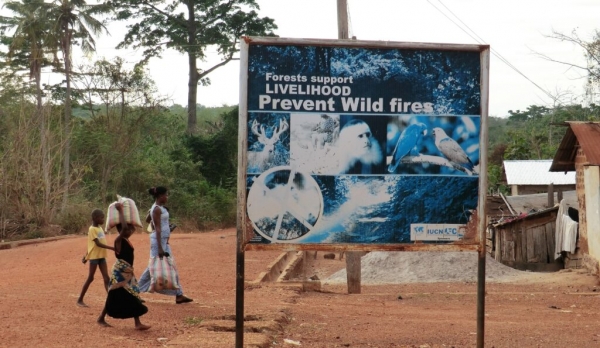Climate change and human activities like deforestation are causing more fires in central and west africa’s wet, tropical forests, according to the first-ever comprehensive survey there. The fires have Longbeen overlooked.
Climate change and human activities like deforestation are causing more fires in central and west africa’s wet, tropical forests, according to the first-ever comprehensive survey there. The fires have Longbeen overlooked.
A new study presents the first large-scale analysis of fire patterns in west and central Africa’s wet, tropical forests. The number of active fires there typically doubled over 18 years, particularly in the Congo Basin. The increases are primarily due to increasingly hot, dry conditions and humans’ impact on the forests, including deforestation. The increase in forest fires is likely to continue given current climate projections, according to the study.
With fires increasing in other historically wet forests, such as the U.S. Pacific Northwest and the Amazon, wet forest fires can no longer be ignored, the researchers say.
Scientists have known for decades that wet forests in western and central Africa have fires, but because the fires tend to be much smaller than their counterparts in dry woodlands and savannas, relatively little research has been done on Africa’s tropical forest fires. This has led to uncertainty over where and when they burn, what exacerbates them and how that might shift in response to climate change.
Read more at American Geophysical Union
Image: Fires in Africa’s wet, tropical forests have doubled in recent decades, a new Geophysical Research Letters study found. Although Africa is known as “the fire continent,” larger savanna and woodland fires often dominate the region’s fire narrative and research. The photo shows a common sign about the prevention of forest fires in Ghana. (Credit: M. Wimberly)




